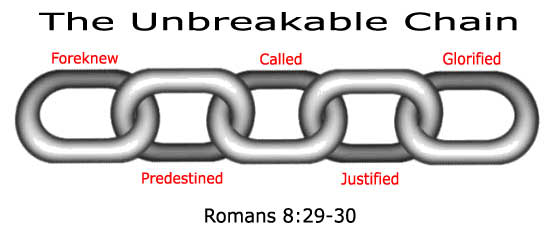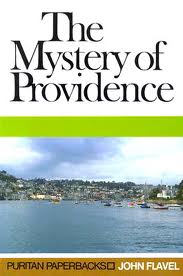
The doctrine of the providence of God assures believers that the Lord is sovereign over the circumstances of their lives. Indeed, “The Church is His special care and charge. He rules the world for its good, as a head consulting the welfare of the body.” (John Flavel)
Meditation on God’s providence will foster both gratitude and fortitude in believers. Flavel in his classic book, The Mystery of Providence demonstrates how the Reformed doctrine of providence provides practical advice on how believers may grow in sanctification and enjoy the peace of God through times of affliction (excerpts given below).
————————-
APPLICATION OF THE DOCTRINE OF PROVIDENCE
How may a Christian discover the will of God and his own duty under dark and doubtful providences?
In order to answer this question we must consider what is meant by the will of God and what by those doubtful providences that make the discovery of His will difficult and what rules are to be observed for ascertaining God’s will for us under such difficult and puzzling providences.
How may a Christian be supported in waiting upon God, while Providence delays the performance of the mercies to him for which he has long prayed and waited?
It is supposed in this case that Providence may linger and delay the performance of those mercies to us that we have long waited and prayed for, and that during that delay and suspense our hearts and hopes may be very low and ready to fail. Continue reading “Finding God’s Peace in Times of Afflictive Providence (Covid-19 Crisis)”
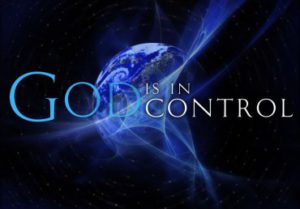
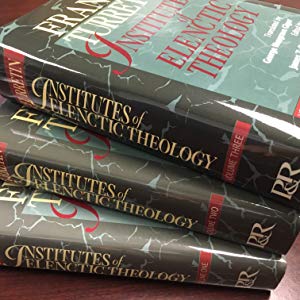 THIRTEENTH QUESTION: MIDDLE KNOWLEDGE
THIRTEENTH QUESTION: MIDDLE KNOWLEDGE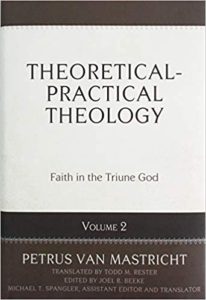 It has been suggested by some bloggers that exegesis is on the side of the Calvinists while logic is on the side of the Arminians. This suggestion sounds plausible since the majority of Christian philosophers today are either Arminians or Open theists. The bloggers are correct in acknowledging that Calvinists offer robust exegesis to support their arguments which is evident in the works of Thomas Schreiner, John Piper, Sam Storms and James White. However, the suggestion is mystifying since historically Calvinists have been accused of imposing of a rigid logical system onto Scripture. We can only conclude that the bloggers who suggest that Calvinists lack rigor in logical analysis have never bothered to read Calvin and his successors like Francis Turretin, John Owen, Jonathan Edwards or Dutch Reformed theologians like Wilhelmus Brakel and Petrus van Mastricht. A quick glance of Richard Muller’s 4-vol (2176 pages) work on Post-Reformation Reformed Dogmatics should immediately impress the reader of both the acuity and logical brilliance displayed by the Calvinists. It was precisely because the doctrinal disputations of the Reformed Scholastics were dominated by austere logic, where conciseness and clarity trumps readability that Calvinism has been accused on putting logic above Scripture.
It has been suggested by some bloggers that exegesis is on the side of the Calvinists while logic is on the side of the Arminians. This suggestion sounds plausible since the majority of Christian philosophers today are either Arminians or Open theists. The bloggers are correct in acknowledging that Calvinists offer robust exegesis to support their arguments which is evident in the works of Thomas Schreiner, John Piper, Sam Storms and James White. However, the suggestion is mystifying since historically Calvinists have been accused of imposing of a rigid logical system onto Scripture. We can only conclude that the bloggers who suggest that Calvinists lack rigor in logical analysis have never bothered to read Calvin and his successors like Francis Turretin, John Owen, Jonathan Edwards or Dutch Reformed theologians like Wilhelmus Brakel and Petrus van Mastricht. A quick glance of Richard Muller’s 4-vol (2176 pages) work on Post-Reformation Reformed Dogmatics should immediately impress the reader of both the acuity and logical brilliance displayed by the Calvinists. It was precisely because the doctrinal disputations of the Reformed Scholastics were dominated by austere logic, where conciseness and clarity trumps readability that Calvinism has been accused on putting logic above Scripture. 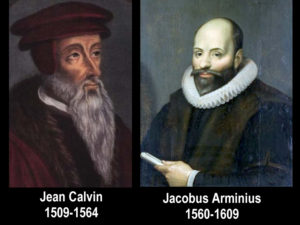
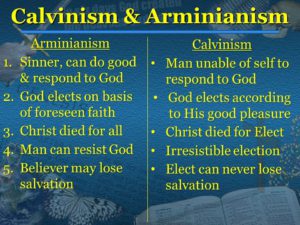
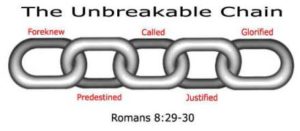 Historically, the church has upheld the doctrine that God from eternity past, before the creation of the world, has predestined individuals to receive salvation. These individuals are elected “in Christ”. However, Arminians, beginning from the 17th century, have argued that election is corporate rather than individual. Arminians object to individual election since it appears to them that God is arbitrary and unjust when he chooses and saves some individuals, but bypasses other individuals. But, by the same token, the same objection also applies to corporate election if God chooses to save a group of people and bypasses other groups. More importantly, the hermeneutics of the Arminian view of corporate election becomes evidently inadequate when it is tested with a close reading of two crucial biblical passages found in Ephesians 1 and Romans 9.
Historically, the church has upheld the doctrine that God from eternity past, before the creation of the world, has predestined individuals to receive salvation. These individuals are elected “in Christ”. However, Arminians, beginning from the 17th century, have argued that election is corporate rather than individual. Arminians object to individual election since it appears to them that God is arbitrary and unjust when he chooses and saves some individuals, but bypasses other individuals. But, by the same token, the same objection also applies to corporate election if God chooses to save a group of people and bypasses other groups. More importantly, the hermeneutics of the Arminian view of corporate election becomes evidently inadequate when it is tested with a close reading of two crucial biblical passages found in Ephesians 1 and Romans 9.